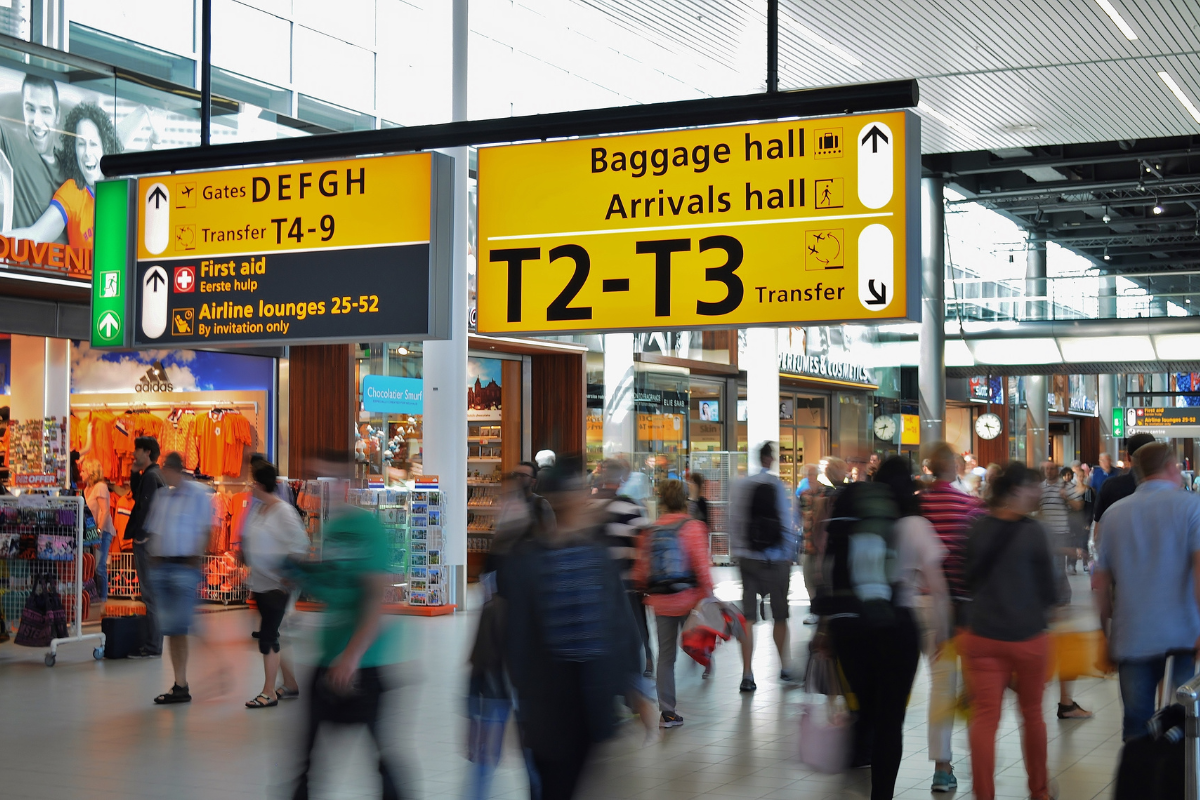Traveling is an exhilarating adventure that allows us to explore new horizons, immerse ourselves in diverse cultures, and create lasting memories. However, amidst the excitement, travel can also give rise to stress and anxiety.
In this blog post, we will delve into the various factors that contribute to travel stress, shedding light on the underlying causes and helping you gain a deeper understanding of why travel can sometimes be overwhelming. By identifying these stressors, you can better prepare yourself and develop effective strategies to mitigate travel stress.
The Complexity of Trip Planning
- The Overwhelming Amount of Choices: From selecting destinations and accommodations to finding the best deals, the sheer number of options available during the trip planning process can create decision fatigue and stress.
- Time Constraints and Deadlines: Limited timeframes for organizing travel arrangements, including booking flights, accommodations, and activities, can add pressure and anxiety to the planning phase.
- Uncertainty and the Fear of the Unknown: Stepping into unfamiliar territory can trigger anxiety, as travelers may worry about language barriers, cultural differences, and navigating new environments.
Logistics and Travel Hurdles
- Airport Chaos: Long lines, security procedures, flight delays, and navigating through bustling airports can be overwhelming, particularly during peak travel periods.
- Transportation Challenges: Dealing with traffic congestion, public transportation complexities, and the stress of adhering to rigid schedules can add strain to the travel experience.
- Lost or Delayed Luggage: The fear of misplaced or delayed baggage can cause anxiety, as travelers depend on their belongings for comfort and practicality during their journey.
- Health and Safety Concerns: Worries about potential illnesses, injuries, or accidents while traveling, especially in unfamiliar destinations, can contribute to travel stress.
Disruption of Routine and Comfort Zone
- Leaving the Familiar Behind: Stepping outside of our comfort zone and routines can be unsettling, as we adapt to new environments, cultures, and social dynamics.
- Sleep Disruptions and Jet Lag: Crossing time zones and adjusting to new sleep patterns can lead to fatigue, disorientation, and decreased well-being, impacting the overall travel experience.
- Homesickness and Emotional Disconnect: Being away from loved ones, familiar surroundings, and daily routines can trigger feelings of homesickness and emotional strain.
Financial and Budgetary Concerns
- Balancing Travel Costs: Financial considerations, including budgeting for accommodations, transportation, meals, and activities, can add stress to travel planning and impact decision-making.
- Overspending and Unexpected Expenses: The fear of exceeding budgets or encountering unforeseen costs during the trip can contribute to financial anxiety and strain.
Unforeseen Circumstances and Unexpected Challenges
- Travel Disruptions and Emergency Situations: Flight cancellations, natural disasters, political unrest, or personal emergencies can lead to significant stress and logistical challenges.
- Language Barriers: Communication difficulties due to language differences can hinder interactions, navigation, and obtaining essential information, leading to frustration and stress.
Now that we have explored the underlying causes of travel stress and helped you gain a deeper understanding of why travel can sometimes be overwhelming, let's delve into some practical solutions and effective strategies to manage and mitigate the types of stress discussed.
Simplify the Planning Process
To combat the complexity of trip planning, streamline your decision-making process. Limit the number of options you consider, prioritize what's most important to you, and delegate tasks if possible. Utilize travel websites and apps that provide comprehensive information and reviews to ease the burden of researching accommodations, activities, and dining options.
Plan Ahead and Allow for Flexibility
Give yourself ample time to plan and book your travel arrangements, taking into account potential delays and unforeseen circumstances. Creating a well-structured itinerary can provide a sense of control and alleviate stress. However, be sure to incorporate flexibility into your plans, allowing room for spontaneity and unexpected opportunities.
Seek Support and Information
Feeling overwhelmed by the unknown? Reach out to friends, family, or online travel communities for advice and recommendations. Research your destination in advance to familiarize yourself with local customs, transportation options, and safety precautions. Having a solid understanding of your travel environment can help ease anxiety and build confidence.
Practice Self-Care
Prioritize self-nurturing and self-care throughout your journey. Engage in activities that promote relaxation and well-being, such as deep breathing exercises, mindfulness meditation, or gentle yoga. Take breaks when needed, listen to soothing music, or indulge in a good book. Remember to prioritize sleep to rejuvenate your mind and body.
Pack Mindfully and Prepare for the Unexpected
Pack efficiently and ensure you have essential items easily accessible. Consider travel insurance to provide peace of mind in case of unforeseen circumstances. Prepare a small first aid kit with basic medical supplies to address minor health concerns. Knowing you are prepared can alleviate anxiety and empower you to handle unexpected challenges.
Embrace a Positive Mindset
Approach your travel experience with a positive mindset and an open attitude. Embrace the spirit of adventure and be open to new experiences and cultural differences. Remember that travel hiccups and unexpected situations are part of the journey. Adaptability and resilience are key traits that will help you navigate any challenges that come your way.
Stay Connected and Communicate
Maintaining connections with loved ones back home can provide a sense of comfort and support. Share your experiences and feelings with family and friends, either through regular phone calls, messaging apps, or social media updates. If language barriers arise, make an effort to learn a few basic phrases or use translation apps to facilitate communication and ease stress.
Engage in Relaxation Techniques
Consider incorporating vagus nerve stimulation (VNS) into your travel routine. VNS, whether through wearable devices or guided techniques, can activate the body's relaxation response and promote deep relaxation, reducing travel-related stress and anxiety. Explore options like Neuvana's Xen, which provides gentle vagus nerve stimulation through headphones, enabling you to relax and enhance your well-being wherever you go.
Understanding the factors that contribute to travel stress is crucial for developing strategies to alleviate anxiety and ensure a more enjoyable journey. By acknowledging the complexities of trip planning, logistics, disruptions to routine, financial considerations, and unexpected challenges, travelers can take proactive steps to mitigate stress.
From thorough preparation and research to practicing self-care and embracing flexibility, the power to reduce travel stress lies in our ability to adapt, plan ahead, and maintain a positive mindset. With these insights, you can embark on your travel adventures with confidence and enhance the joy of exploration while minimizing the impact of travel stress.





